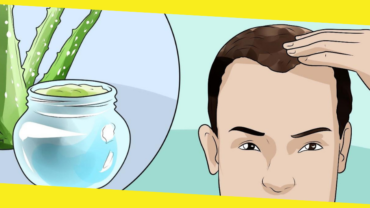Know How To Handle Male Postpartum Depression
Learn about male postpartum depression: understand the symptoms, causes, and strategies for coping with this common condition.

The “baby blues” are not the sole prerogative of women. Men too can feel serious mood swings after becoming a new parent. Paternal postpartum depression has become extremely common; more so, following 3 to 6 months of the birth of a child as dads too experience its symptoms. After all, pops too need to attend to the night feedings and fuss as well as realigning their work schedule to cater to the regular needs of their brand new member.
Factors That Develop Male Postpartum Depression
Male postpartum depression is believed to result from a combination of biological modifications and environmental stressors. Like mothers, fathers also undergo hormonal alterations during their spouse’s pregnancy and the postpartum duration. The hormone testosterone, that raises a father’s sensitivity to the crying of their infant and raises attachment, tends to decline during the course of the pregnancy. Studies have revealed that reduced testosterone is associated with male depression, so this accounts for the greater vulnerability of men to depression during this time.
Hormonal Imbalances Also Affects
A few men may experience hormonal imbalances which can place them at a high risk of postpartum depression. Cortisol, Estrogen, Prolactin, and Vasopressin are hormones that usually augment after birth to assist in parenting, though fathers with reduced levels may be more prone to depression.
New Role Play Can Create Stress
Multiple factors relating to the father’s surroundings may also expose him to postpartum depression. Fathers who suffer from a lack of support and stress in their communion are also at increased risk. It is natural for fathers to get jealous about the association and time exchanged between mother and child. Couples may also encounter problems concerning intimacy and an advancement in stress as they renegotiate their roles in the family.
Possessing an associate who is undergoing postpartum depression substantially raises the probability of the father’s depression. These entire experiences and changes can generate considerable stress. In absence of correct coping mechanisms and supports, depressing can develop in fathers.
Natural Ways To Manage Male Postpartum Depression

If you are a father coping with postpartum depression, you can adopt the following steps to aid yourself cope. Keeping a link with your support mechanism, discovering outlets to convey yourself, and prioritizing your mental and physical health as a man can aid you adapt to parenthood.
These are 8 natural ways for dealing with male PPD that helps you to readjust:
1 Afford Yourself A Break
Parenthood is hard and can deliver a set of feelings, both positive and negative. It is customary to feel stressed, overwhelmed, anxious, and low occasionally. Many new parents who undergo negative emotions imagine that there is something improper with them. This can lead to shame, and consequently raise depression. Remain assured that these emotions about being a parent are natural. Stop blaming yourself and rather commend yourself for accepting the hardship and attempting to help yourself be a more adjusting new parent.
2 Associate With Other Dads
Association and social support with different people can help you to adapter better towards parenthood. Even though you do not communicate your experiences openly, interacting with others reduce loneliness and isolation. Attempt to schedule an outing with a friend or get yourself involved in a dad’s association in your region.
3 Show Yourself Creatively
Discovering creative outlets to show your emotions can too be helpful. If you do not find it hard to articulate yourself verbally, becoming creative may seem less challenging. A few ways to accomplish this comprise creating art, music, or by writing. Even just penning your feelings and thoughts for some minutes daily can act as a release. If you find it hard to open up to others or feel left out, try discovering an inventive outlet to exhibit yourself, whether it is something you have attempted previously or something new.
4 Perform Some Exercise
Exercise has been extensively recognized as a mood-enhancer and as a technique to deal with depression, stress, and anxiety. Sparing time to exercise some days in a week for almost an hour can boost your feelings. Whether you head for the gym, or play sports, on a run, body movement in any shape benefits your physical and emotional wellness.
5 Speak With Your Partner
Since male postpartum depression is more probable when a mother gets depressed, keeping a backup relationship with your partner is vital for both of your emotional state. Scheduling time with your partner is tough if you have a newborn. If possible, attempt to chart time each week to spare for one another. Date nights may be separate after you have a newborn, though still having a date night in-house can aid you to stay connected. Utilize this time to check out each other’s feeling, discuss about parenthood, and performs things together that you like.
6 Begin A Hobby
Keeping up an activity that you relish and can look ahead to can aid to elevate your mood. Whether it is a previously tried hobby or something current, conceptualize a list of probable activities. Numerous hobbies also provide the opportunity to link with different people, which can assist with isolation and loneliness. There are innumerable hobbies you can attempt, but a few ideas involve joining a book club or team sport, learning to play an instrument, writing, building something, or conducting a class.
7 Formulating a Sleeping Plan
The baby stage is recognized for sleep deprivation, which is supposed to play a part in female postpartum depression. It is probable that absence of sleep also fosters or aggravates depression in men. To address this problem, think about creating a sleep strategy with your partner. Conceptualize ways that might enable you to plan night-time feedings and diaper switches to optimize each person’s sleep. For instance, a few families will earmark the initial feeding to the father and the second feeding to the mom, allowing each partner to aim for a 6 to 8 hour stretch.
Your choices may be separate based upon whether you are bottle or breast feeding, but it can aid to build a list of probabilities and pick one that seems the most gainful for both of you. If you discover that you are grappling with sleep issues that are not connected to the baby, discuss these issues with your healthcare supplier.
8 Ruminate On the Positive Nuances of Fatherhood
Though fatherhood is stressful, it also carries positive aspects that you find pleasurable. It can be difficult to remember these aspects when you are sad, overwhelmed, or tired. Keep a list in your memory or write one down and allude to it when you feel stressed. Include more with the growth of your baby and you experience new happiness. Reminiscing yourself to feel obligation for the joys of parenthood can aid you deal with the challenges.
Tips for Treatment of Male Postpartum Depression

Since males having postpartum depression have not been researched as broadly as females, not much is known regarding the types of treatment that are most effective. Nevertheless, professionals hold that multiple types of treatment, like medication and therapy, which can aid treat primary depressive disorder, can also function for male postpartum depression.
Therapy
Therapy is generally the initial kind of treatment that is suggested for mild to moderate male postpartum depression. Therapy consists of conference with a therapist, either personally, as a couple, or in a group. The goal is to aid lower symptoms of depression and to relax the changeover to parenthood. The particular interventions used by a therapist to cure postpartum depression will rest on their specific approach.
Popular kinds of therapies employed to heal male postpartum depression comprise:
Cognitive behavioural therapy: CBT aids fathers recognize and alter negative emotions that result in their depression, as well as instruct coping skills to handle stress and different emotions.
Interpersonal therapy: IPT highlights on aiding fathers better the association in their lives that are conducive to their depressive symptoms.
Supportive therapy: Unlike different kinds of therapy, supportive therapy is less structured and goal-oriented. This approach comprises a therapist offering support, empathy, and safe room for the father to exchange his thoughts and feelings.
Psychodynamic therapy: This kind of therapy highlights on rendering unconscious feelings and intended thoughts, which can assist to improve insight.
Intended Treatment Result and Timeline
Therapy is successful in healing postpartum depression in fathers by aiding reduce symptoms of depression and improving general wellness. Duration of treatment can differ based on the seriousness of your depression and various factors like if you have a sound support system or are facing separate mental health concerns simultaneously.
The kind of therapy pursued by you can also affect how fast your symptoms improve. For instance, interpersonal therapy is usually restricted to 12 to 16 sessions, whereas psychodynamic therapy is not restricted to a definite number of sessions.
Lifestyle Alterations
Apart from professional treatment, inducting specific lifestyle changes can also aid better symptoms of depression. Exercise, sleep, and diet are all factors that can impact your mood. Target to consume a healthy diet that includes a combination of healthy fats, whole grain carbohydrates, protein, vegetables, and fruits and is without processed foods and do some type of exercise some days each week. If possible attempt to obtain minimum7 to 8 hours or sleep each night.
Limiting or avoiding certain substances might also aid to better your depression. Drinking alcohol, smoking cigarettes, and consuming huge quantities of caffeine can lead to or aggravate depression and anxiety. Whereas little amounts of caffeine may aid to improve mood, excess of caffeine can affect your sleep. If you consume caffeine, attempt to restrict yourself to 400mg a day. With regard to alcohol, the Centers for Disease Control and Prevention (CDC) suggest that men take no greater than two drinks each day. Smoking should be refrained completely, as it is connected with depression and multiple health issues. If you have problems quitting, ensure to discuss with your healthcare provider.
Wrapping Up
As a new father, coping with postpartum depression can be taxing. Your experience with depression may be specific to you; however, you are not alone. Discussing with a therapist or fond one and arranging self-care can assist you to feel better. If you are struggling with postpartum depression, you have hope for recovery and joyous days ahead!
Recommended For You
Indian Remedies for Men’s Hair-fall Hair-loss Baldness
Sujata Sanyal
Sujata Sanyal has been in the writing circuit for the past 7 years and has touched upon various genres like travel, health, lifestyle, a wee bit of technology, cuisine, product descriptions and a bevy of others. 1 part of her is interested in animated political discussions, 2nd part interested in studying biographies and the remainder part in love with music and socially relevant work. Too many parts?





Mental health influences every aspect of life, yet it’s often neglected. Promoting ways to nurture it helps create stronger, happier individuals. Thanks for the article!